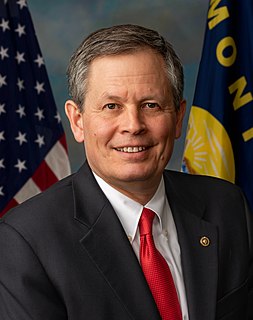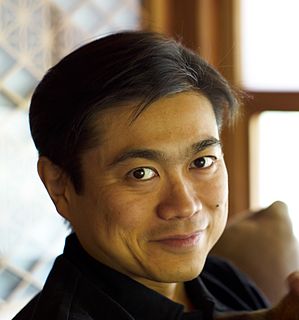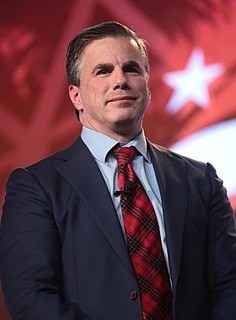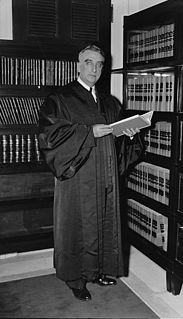A Quote by Hugo Black
I do not believe that it can be too often repeated that the freedoms of speech, press, petition and assembly guaranteed by the First Amendment must be accorded to the ideas we hate or sooner or later they will be denied to the ideas we cherish. The first banning of an association because it advocates hated ideas - whether that association be called a political party or not - marks a fateful moment in the history of a free country.
Quote Topics
Amendment
Assembly
Association
Banning
Because
Believe
Cherish
Country
Denied
First
First Amendment
Free
Free Country
Freedoms
Guaranteed
Hate
Hated
History
Ideas
Later
Marks
Moment
Must
Often
Party
Petition
Political
Political Party
Press
Repeated
Sooner
Sooner Or Later
Speech
The History Of
Too
Whether
Will
Related Quotes
When we were told that by freedom we understood free enterprise, we did very little to dispel this monstrous falsehood. Wealth and economic well-being, we have asserted, are the fruits of freedom, while we should have been the first to know that this kind of happiness has been an unmixed blessing only in this country, and it is a minor blessing compared with the truly political freedoms, such as freedom of speech and thought, of assembly and association, even under the best conditions.
In fact, it's the greatest threat to liberty of all kinds, whether it is freedom of religion, whether it is freedom of speech, whether it is freedom of the press, whether it is freedom of association, all of the rights that are enshrined in the First Amendment are threatened by the active, aggressive homosexual lobby and the homosexual agenda.
The acts of the mind, wherein it exerts its power over simple ideas, are chiefly these three: 1. Combining several simple ideas into one compound one, and thus all complex ideas are made. 2. The second is bringing two ideas, whether simple or complex, together, and setting them by one another so as to take a view of them at once, without uniting them into one, by which it gets all its ideas of relations. 3. The third is separating them from all other ideas that accompany them in their real existence: this is called abstraction, and thus all its general ideas are made.
Ideas are dangerous, but the man to whom they are least dangerous is the man of ideas. He is acquainted with ideas, and moves among them like a lion-tamer. Ideas are dangerous, but the man to whom they are most dangerous is the man of no ideas. The man of no ideas will find the first idea fly to his head like wine to the head of a teetotaller.
Because of the free speech clause in the First Amendment, which is very clear, "The government shall make no law abridging freedom of speech," and it literally is about political speech. You can say anything you want about politics, a candidate, and the government cannot stop you. And the Democrats hate that.


































